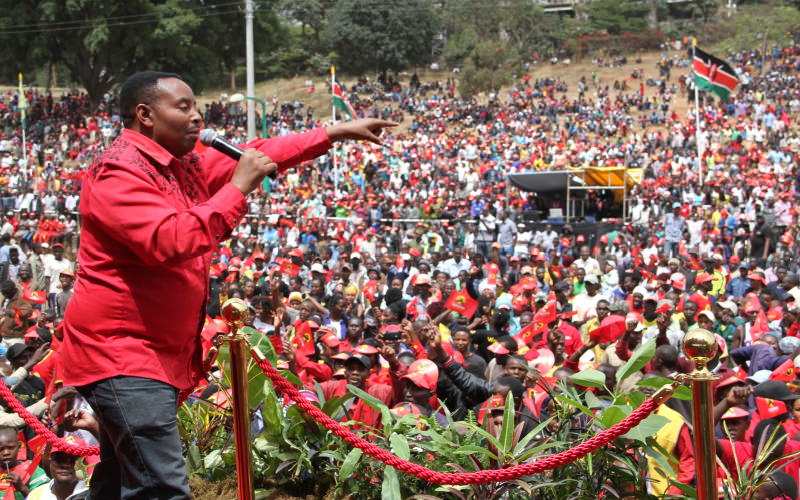×
The Standard e-Paper
Stay Informed, Even Offline

Gospel artist Ben Githae performs onstage during the inauguration of former Nairobi governor Mike Sonko at Uhuru Park on August 21, 2017.[Edward Kiplimo,Standard]
This year’s 58th Madaraka Day celebrations has lined up both established and upcoming musicians from the region. They are Suzanna Owiyo, Freddy Jakadongo, Iddi Achieng, Dola Kabarry, Jose Langa, Lizzy Seme, Linet Aluoch Pamba, Koffi Macadory, Dr Osito Kalle, Odhis Toto, Musa Jakadala and Odongo Swagg.